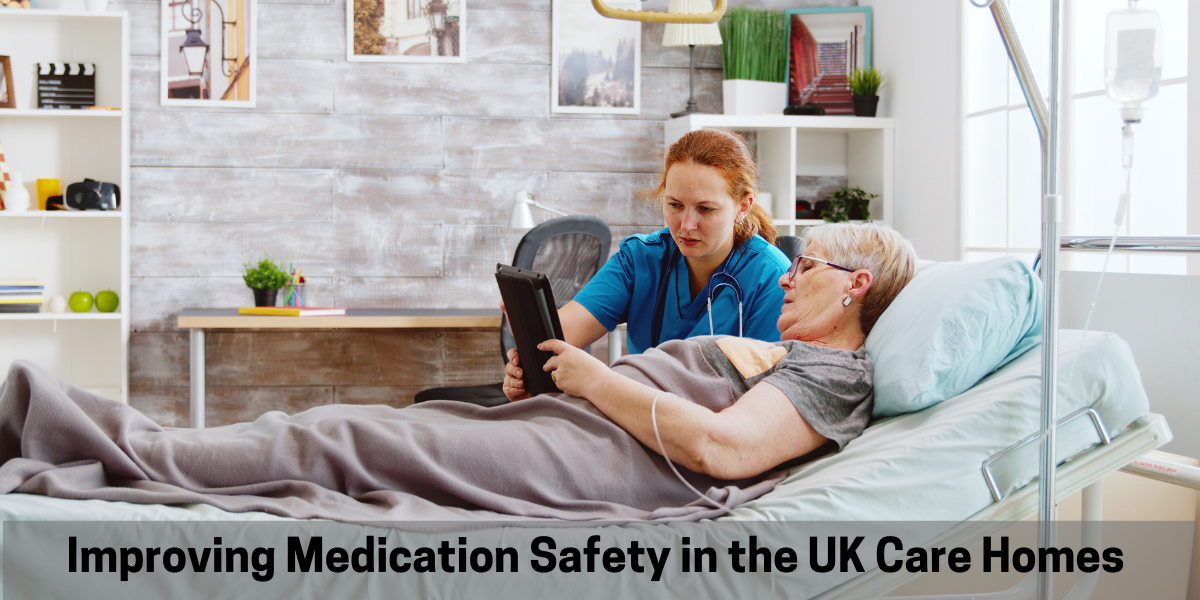Medication safety is an important aspect in care home settings, as residents often have complex medication regimens. Medication errors can lead to serious consequences such as underdose, overdose, delayed treatment, and legal consequences. In some cases, medication errors can even lead to deaths. Care homes in the UK have implemented several measures to prevent medication errors. Here we discuss some insights on how care homes are improving medication safety:
1. Employee training:
In order for caregivers to be able to administer the right medicine and the right dose at the right time via the right route every time, they must receive proper training on medication safety. This includes training on important aspects such as:
- Understanding the 8 Rs of medication administration
- How to correctly administer drugs?
- How to store and handle medications properly?
- How to recognise any potential adverse reactions?
2. Use of technology:
Care homes are using technology to help them achieve medication safety. They are implementing technologies such as electronic mar and barcode scanning. Technological solutions not only reduce the chances of human error but also make it easier to streamline the medication administration process.
3. Standardisation of procedures:
Standardised procedures and protocols for medication administration are becoming increasingly important to ensure consistent practices. The 8 rights of medication administration are widely used protocols to make sure that the right resident is receiving the right medication in the right dose, at the right time, via the right route.
4. Regular reviews and audits:
Care homes are regularly assessing their medication processes and protocols to meet the quality standards. Through the use of reviews and audits, care home managers can find areas of improvement. Also, they can find the areas where there is a lack of compliance with regard to guidelines and regulations. Reviews allow care home managers to identify any discrepancies or issues early on, ensuring that high-quality care is provided for residents. Care homes are also implementing a feedback and review system for medication errors, near-misses, and adverse drug events to improve medication safety regimens.
5. Involvement of pharmacists:
The involvement of pharmacists in care homes is becoming increasingly important to ensure safe medication administration. Pharmacists can also play an important role in medication reviews. Also, they can train caregivers, offering them advice on the best practices for medication management.
6. Collaboration with GPs and hospitals:
Care homes are collaborating with GPs and hospitals to ensure that residents receive the best possible care. By forming these collaborations, care homes are able to strengthen the continuity of care and ensure medication safety.
7. Resident and family involvement:
By involving residents and their families in the medication management process, care homes ensure the safety and well-being of residents. Family members can prevent medication errors by keeping a list of medicines their loved ones are allergic to. Also, family members can provide valuable information on the medical history of their loved ones.
How does electronic MAR help in reducing medication errors?
The electronic MAR system helps caregivers easily access patient information and administer medications with reduced or zero mistakes. Moreover, reminders on the software can be set so that caregivers are always informed when a dose is due. To know more about the benefits of eMAR, check this read. The ability to reduce medication errors through electronic MAR has tremendous value to patients and healthcare providers alike. To book a demo, get in touch with us.







